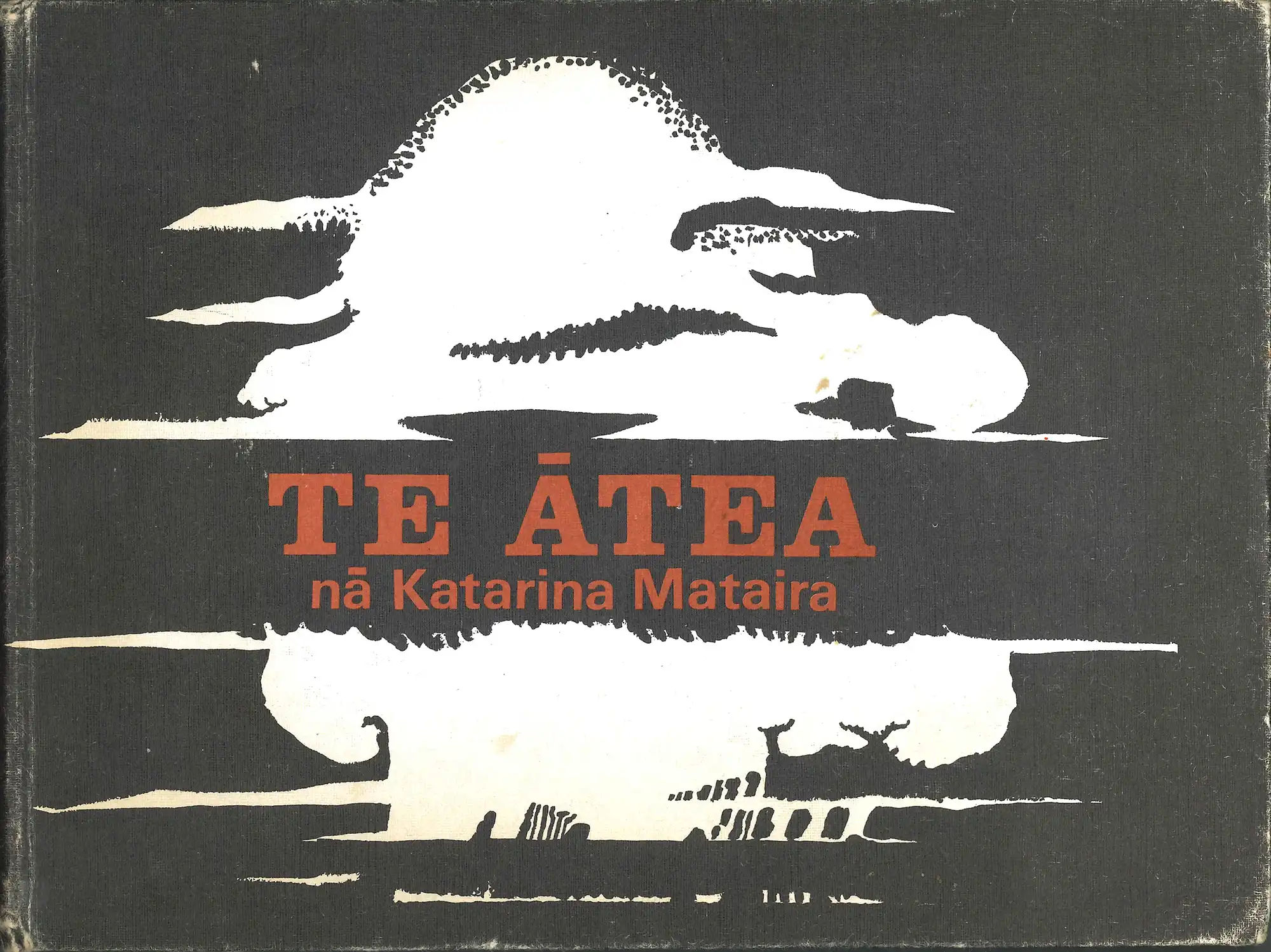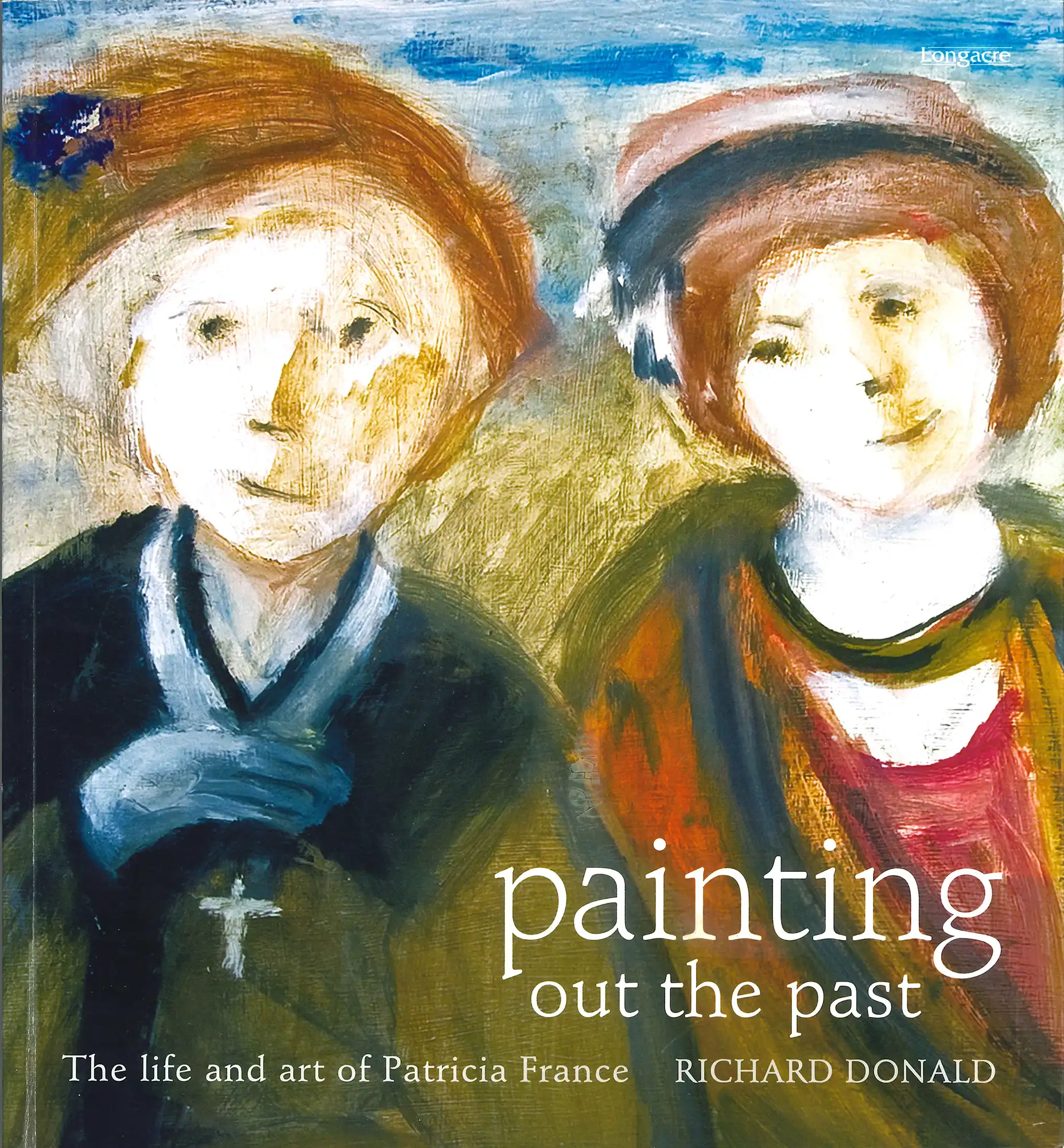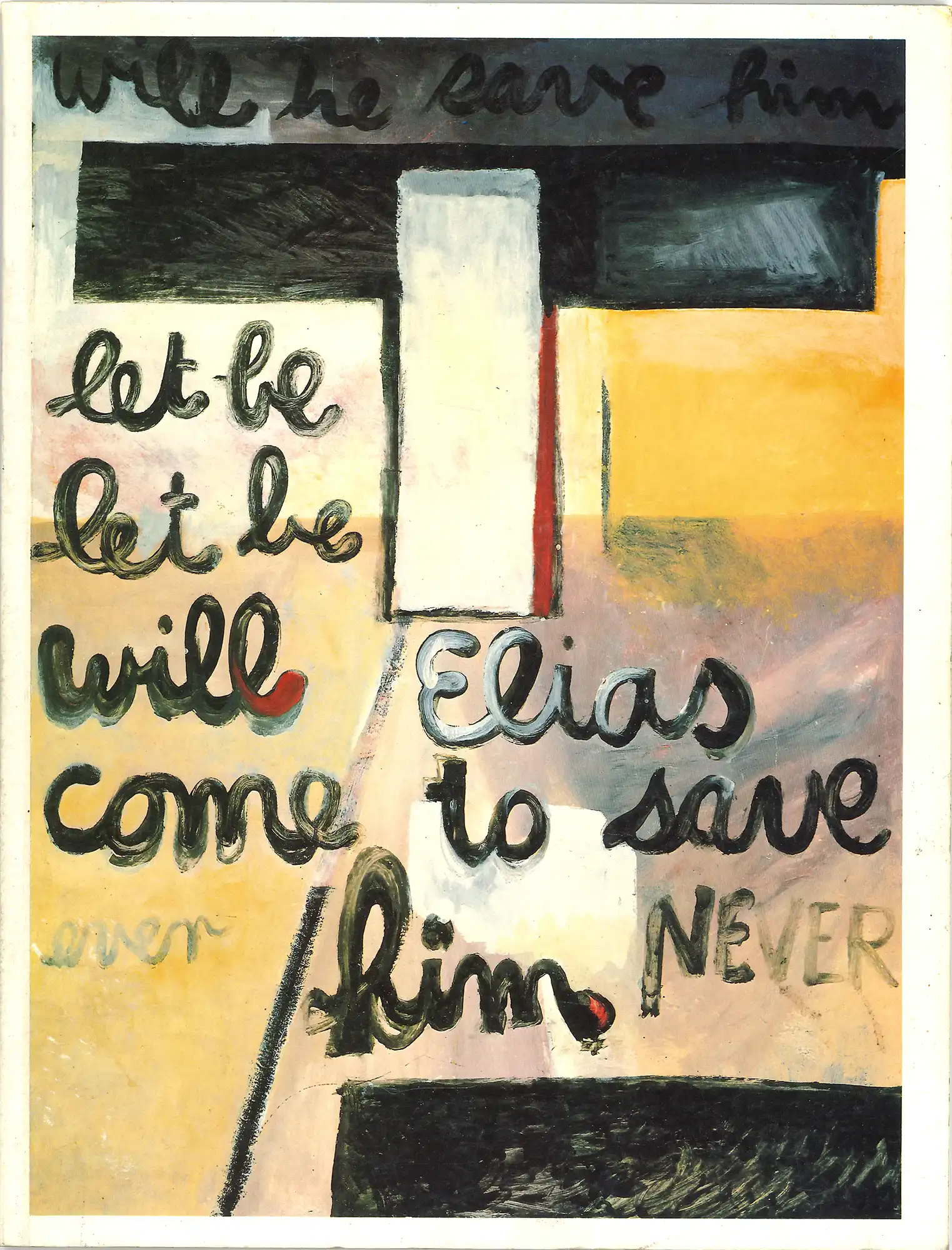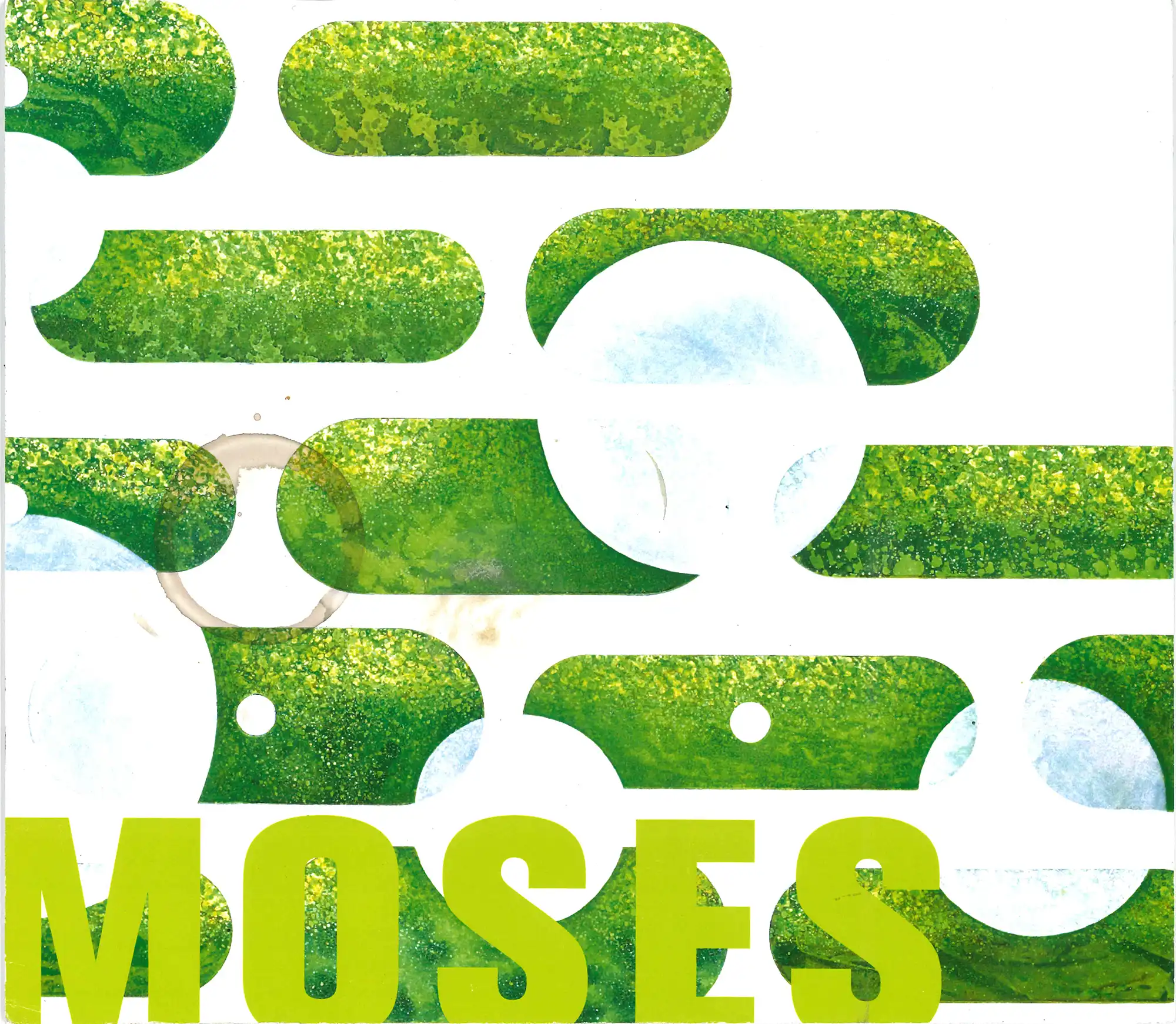Case 15
- Art – Collecting Contemporaries

Katarina Mataira, Te Ātea. Wellington: Department of Education, 1975. SPRH 899.4421 MAT
Dame Kāterina Mataira (1932-2011, Ngāti Porou) was a budding teacher and art educator when she befriended Hotere in Dunedin, while both were studying to become arts and crafts specialists at King Edward Technical College under Gordon Tovey. She would become a leading component in the Māori language renaissance over the course of her career, and wrote children’s books in Māori, often illustrating them herself. She was one of Hotere’s unwavering champions throughout the course of their professional lives. The accompanying postcard in Mataira’s hand suggests she may not have had her own copy of this book, as she appears to be returning Hotere’s copy after having borrowed it.

Richard Donald, Painting out the past: The life and art of Patricia France. Dunedin: Longacre Press, 2008. SPRH 759.993 FRA
Without any formal qualifications, Patricia France (1911-1995) did not become a professional artist until she was 66. Her work came to the attention of artists such as Hotere, who was a staunch supporter, and Colin McCahon, both of whom she corresponded with. She and Hotere also traded art works, each displaying them in their respective homes. This presentation copy of Patricia France’s biography bears the author’s inscription inside the front cover: ‘For Ralph / One of Patricia’s best friends and the person who gave Patricia the courage to paint professionally / with very best wishes’.

Richard Donald, Painting out the past: The life and art of Patricia France. Dunedin: Longacre Press, 2008. SPRH 759.993 FRA
Open image in new window

Colin McCahon, I will need words. Wellington: National Art Gallery, 1984. SPRH 759.993 MCC
Colin McCahon (1919-1987) and Hotere admired each other’s work. They became acquainted over sessions at the Kiwi Tavern in Auckland in the late 1950s. McCahon had spent time in the US and was keen to share what he had learnt from the experience; Hotere was soon to have his artistic mind further expanded during his own travels abroad. These two artists manifested certain parallels in their work: collaborating with poets, incorporating numbers, symbols, and words into their works; and using religious references to effect. Hotere famously gave McCahon the words of a Māori chant given to him by his father Tangirau, which McCahon incorporated into his work The Shining Cuckoo (1974).

Russell Moses, Necessary reflections. Arrowtown: Nadene Milne Gallery, 2010. SPRH 759 MOS
Another of Hotere’s Port Chalmers friends was Russell Moses (b.1948), a self-taught artist originally from Palmerston North, known for his large installations using natural materials. From 1971, he intermittently shared Hotere’s studio space at Observation Point, until its demolition in 1993. Moses also accompanied Hotere and Bill Culbert on a trip to Cuba, paid for by Alan Gibbs; an abiding memory from his experience was, as they briefly passed through Mexico City, how many locals thought Hotere was Mexican. This is one of many items in Hotere’s library that shows its working nature: the coffee cup stain on the cover hints not at a lack of care or empathy for his friend’s work. The library he collected was to be useful, and to be used.



